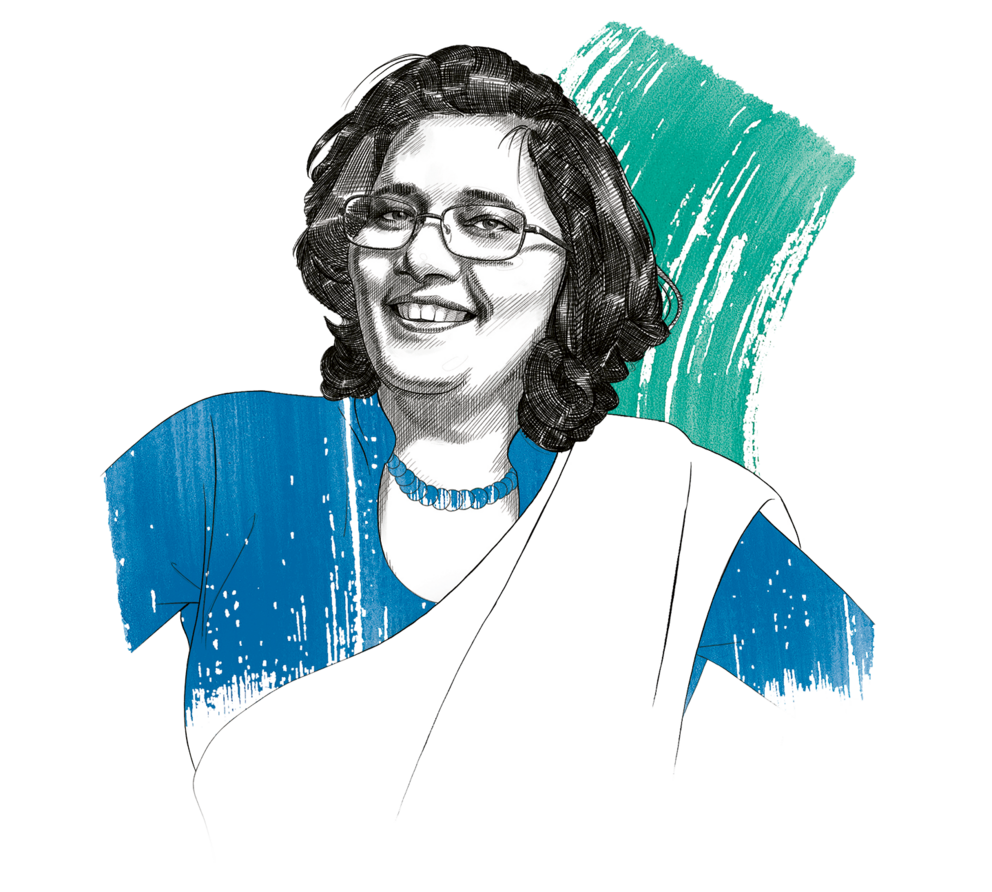Jump to the content
- {{#headlines}}
- {{title}} {{/headlines}}

PROFESSOR DR URMILA PYAKUREL teaches and conducts research in the Central Department of Mathematics at Tribhuvan University in Kathmandu, Nepal. From 2017 to 2019, she was a Humboldt Research Fellow at TU Bergakademie Freiberg.

My parents Mana Maya and Devi Nath Pyakurel grew vegetables, rice and millet. We had ten goats, five buffaloes and three cows as well as two pairs of oxen for the plough. They were called Kaluwa, Bichya, Tare and Phurke. We lived on what the farm produced. Just occasionally, we sold some ghee or goat’s meat to earn money for clothes and medicine. Being the youngest of 12 children, I was spared the farm work. But on Saturdays, when there was no school, I looked after the cows and goats in the forest.

Do join in!
We want to take this topic of diversity beyond the limits of the Humboldt Kosmos magazine. Let’s talk about it! We look forward to sharing your thoughts or your own experiences on #ProgressDiversity.
Then I would spend the whole day sitting by the river daydreaming. I must have been 11 or 12 when I sensed a great darkness in my life. I wanted to get away, continue going to school and see the world. But at the time, my parents were searching for a boy for me. Child marriages were still common in those days. However, my brothers convinced my father that I should be allowed to continue with my schooling. It was not the last hurdle along my path.
The secondary school was a two hours’ walk away in the mountains. The climb up was tiring, the climb down perilous, especially in the rain. From Year 4 onwards, I was always the best in my class. In Year 8, I was the only pupil in my area chosen to take part in a study visit to Japan. For the first time, my father was really impressed. From that moment on, he encouraged me and supported me. But when I then wanted to go to university, I had another fight on my hands. Again, my parents would have preferred me to get married. This time, my cousin intervened to help me.
Even at school, I was fascinated by mathematics and was highly motivated by my maths teacher. Not that he could teach me anything, but he punished me by showing his contempt: a girl who was good at maths was a contradiction in terms, in his opinion. And that really spurred me on. Today, maths is my life. It could not have worked out better.

